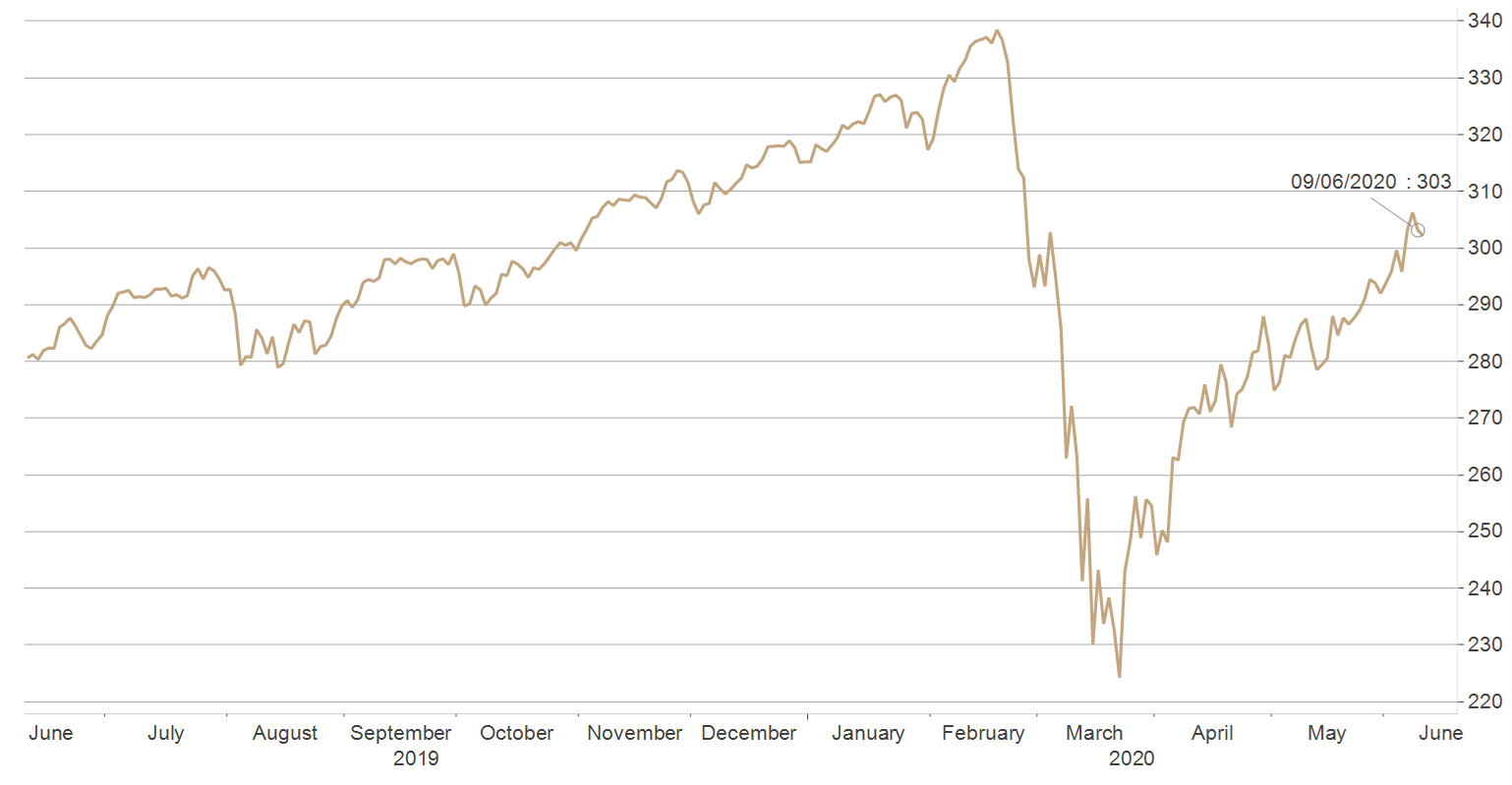Brief comment on the rebound on the equity markets
The rebound in equity prices since March is certainly impressive. Since 23 March, the global equity index has risen by 35% in euro terms. Given the scale and speed of the market decline in February/March on the one hand and the interventions of the authorities on the other, a rebound in stock prices was logical. However, to see some markets recover a large part of their decline in such a short period of time is astonishing. How can this be explained?
MSCI World in euro

Source: Bloomberg / MSCI
A first explanation is that there is no point in looking for fundamental reasons for this rebound. Investors are buying because the market had fallen significantly and they are used to seeing any decline as a buying opportunity. Especially since they know that central banks, starting with the Federal Reserve, are on their side. In addition, the economies are reopening, some recent economic indicators were better than expected (while the long-term economic damage is not yet visible) and the news on the coronavirus front is rather encouraging.
If, however, we want to go further and find a more fundamental justification for the upward trend in the markets, four possibilities seem to exist:
- Stocks were significantly undervalued in February, i.e. before the decline. In other words, despite the fact that corporate profits will fall sharply in 2020 and that the expected profits for this year will at best be reached in 2022, the rise in stock prices is justified by the fact that stocks were too cheap before the fall;
- Interest rates have gone down. Shares are generally valued by discounting future flows (earnings/dividends/cash flows). A decrease in the discount rate increases the present value of these flows and therefore justifies paying a higher price;
- The expectation of much stronger future economic growth, and therefore a much higher level of profits, as a result of the fiscal stimulus currently being put in place;
- A downward revision of investors' return expectations for equities. The argument here would be that because of the crisis, investors have become aware that interest rates will remain permanently low and are therefore willing to accept lower returns for equities. Since price determines return, they are therefore willing to pay higher multiples for equities.
I have to say that none of these four possibilities really convinces me:
- To say that equities were particularly cheap in February would be bizarre after 10 years of rising prices, including a very favourable 2019. On the basis of most valuation ratios, stock markets were, on the contrary, relatively expensive, if not very expensive. (At least in absolute terms, it is true that with interest rates close to zero or even negative, one can always justify even higher multiples for equities);
- Interest rates are not much lower today than they were in February;
- Apart from Germany, no other country has so far launched a major fiscal stimulus program;
- Why would investors have waited until now to finally reconsider their expectations when interest rates have been low for a long time?
Unless one thinks that markets have entered an era where fundamentals no longer matter, the discrepancy between economic reality and stock market behaviour must lead to a certain mistrust of the latter.

